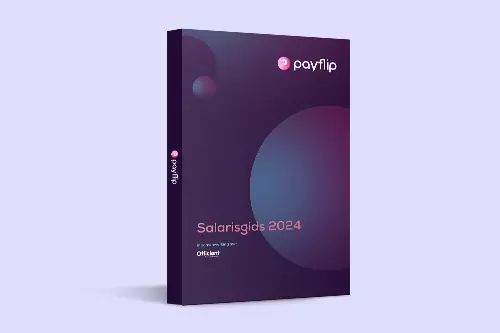The popularity of the cafeteria plan continues to grow at a rapid pace. The opportunity to finance bicycle lease in a tax-friendly manner with the end-of-year bonus or to buy holidays with the cash bonus no longer leaves any mouths watering. Meanwhile, more than 70% of Belgian employees indicate that they find it important to determine their own salary package. But the joint committees are not (yet) joining the table for the cafeteria plan. Below, we provide a clear overview of the influence that your joint committee has on your decision to introduce a cafeteria plan.
What are joint committees? A crash course!
A joint committee (or 'PC' for short) is a body made up of an equal number of representatives from employers' organisations (VBO, UNIZO, UCM, Boerenbond) and trade unions (ACV, ACLVB, ABVV). They were set up in 1968 to group companies with similar activities and, among other things, to conclude agreements that are binding for the entire sector (e.g. minimum wages). Thus, on 1 January this year, there were 100 different joint committees and 64 joint sub-committees, each with its own sector-specific rules.
In order to know which Joint Committee your company falls under, you should therefore take into account the activities of your company. But there is more: if as an employer you employ both blue and white collar workers, you may fall under two different joint labour committees (the PCs starting with a '1' indicate a blue collar population and the '2' stands for white collar workers. The '3' stands for a collection of both).

Joint committees, end-of-year bonuses and cafeteria plans
The Holy Trinity? Not quite yet...
Besides determining the minimum wages (or 'scales'), the joint committee also determines the end-of-year bonuses (or 'thirteenth month'). The Joint Committee determines whether the introduction of an end-of-year bonus is compulsory or not, the method of calculation, and the time and manner of allocation.
And that is where the shoe pinches. Many sector agreements (or "CAOs") stipulate that end-of-year bonuses must be paid in 'money'. According to the letter of the agreement, a payment of an end-of-year bonus in another way is not possible. And since these sectoral agreements are higher in the "hierarchy of legal norms" than e.g. an individual employment contract or a custom within the company, a company cannot deviate from paying a year-end bonus in cash.
As a result, in many traditional sectors, the (heavily taxed) end-of-year bonus cannot serve as a budget in the cafeteria plan. A pity, given that the cafeteria plan has become a very popular instrument to let employees fill in part of their salary package themselves, without this increasing the wage costs for the employer.
In the sectors where the end-of-year bonus must be paid out in cash, we do see a trend towards granting (limited) bonuses as a budget in the cafeteria plan. The same goes for sectors that do not have an end-of-year bonus. This way, these employees (mostly blue-collar workers) can still use a budget to choose holiday days, IT equipment or bicycle lease as part of the cafeteria plan. If they do not choose any of the cafeteria plan benefits, the bonus is still paid out in cash.

Does the future bring advice?
However, an increasing number of sectors (such as PC 100, 200, 307, 316, 329, 336, 341,...) are becoming aware of the importance of a flexible salary package. A salary package that responds to the personal needs of an employee can indeed be an important argument to (continue to) choose a certain employer. Against the background of the well-known war for talent that rages in almost every sector, an attractive remuneration package is therefore no superfluous luxury.
This observation has recently led to some concrete proposals to give cafeteria plans a legal basis. A 'cafeteria plan law' does not yet exist. A law would nevertheless be a breakthrough for many employers and employees, since a legal provision takes precedence over an agreement reached within the joint committee.
Payflip is already closely following the developments regarding cafeteria plans and end-of-year bonuses!
If you have any questions about how a cafeteria plan or end-of-year bonus exactly works within your joint committee, feel free to contact a Payflip expert at maura@payflip.be.





